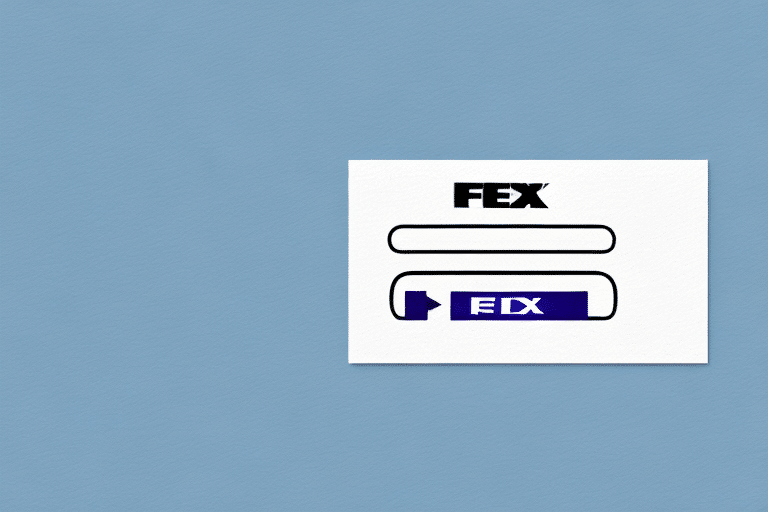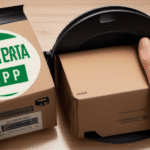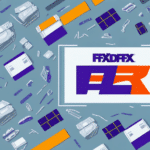Understanding FedEx Ship Manager
FedEx Ship Manager is a comprehensive online shipping solution designed to streamline the shipping process for businesses of all sizes. It enables users to create printable shipping labels, scale labels, and package labels with ease. According to FedEx's official documentation, FedEx Ship Manager integrates seamlessly with various e-commerce platforms, allowing for efficient order management and shipment tracking.
One of the standout features of FedEx Ship Manager is its real-time tracking capability. Businesses can monitor the progress of their shipments, receive notifications upon delivery, and manage multiple shipments simultaneously. This real-time visibility is crucial for maintaining customer satisfaction and operational efficiency.
Additionally, FedEx Ship Manager offers a variety of shipping options, including same-day, overnight, and ground shipping, catering to diverse business needs. The platform supports multiple packaging types, such as envelopes, boxes, and tubes, ensuring that items are shipped securely and appropriately based on their nature and size.
Benefits of Customizing Label Formats
Customizing label formats in FedEx Ship Manager offers several advantages that can enhance your business operations and branding efforts:
- Brand Identity: Incorporating your company logo, colors, and specific fonts can reinforce your brand identity, making your packages easily recognizable to customers.
- Operational Efficiency: Customized labels can include essential information such as order numbers, product descriptions, and special handling instructions, reducing the likelihood of errors and streamlining the shipping process.
- Customer Experience: Professional and well-designed labels contribute to a positive unboxing experience, fostering customer loyalty and encouraging repeat business.
- Compliance: Tailoring label formats to meet specific carrier requirements ensures compliance with shipping standards, minimizing delays and avoiding potential fines.
According to a Forbes article, businesses that invest in customized labeling see a significant improvement in brand recognition and customer satisfaction.
Common Label Formats Used in Shipping
Choosing the appropriate label format is essential for efficient shipping operations. The most common shipping label formats include:
- 4″ x 6″ Thermal Labels: Widely used for their excellent resolution and quick printing capabilities, these labels are ideal for high-volume shipping operations.
- 6″ x 4″ Thermal Labels: Similar to the 4″ x 6″ labels but oriented differently, these are suitable for specific packaging requirements.
- 8.5″ x 11″ Plain Paper Labels: Often used for desktop printing, these labels are versatile and can include additional information such as packing slips.
It's important to note that international shipments may require larger labels to accommodate additional information like customs declarations. Ensuring compliance with carrier-specific requirements is crucial to avoid shipping delays.
Refer to the FedEx Ship Manager guidelines for detailed specifications on label formats and requirements.
Choosing the Right Label Format for Your Business
Selecting the appropriate label format involves considering several factors tailored to your business's unique needs:
Shipping Volume
For businesses shipping over 50 packages daily, thermal labels (4″ x 6″ or 6″ x 4″) are recommended due to their speed and high-quality printing. Thermal labels reduce the time spent on label preparation and minimize errors.
Product Type
The nature of the products being shipped plays a significant role in label selection. Fragile or perishable items may require labels with handling instructions or warnings to ensure safe transit.
Branding and Marketing
Businesses aiming to strengthen their brand presence should opt for label formats that allow for extensive customization, including the incorporation of logos, brand colors, and unique fonts. This not only enhances brand recognition but also creates a professional image.
Budget Considerations
While thermal labels offer durability and efficiency, they may involve higher upfront costs due to specialized printers. On the other hand, plain paper labels are cost-effective and can be printed using standard office equipment, making them suitable for businesses with tighter budgets.
According to a Business.com article, businesses that carefully select their label formats based on these factors can achieve significant cost savings and operational efficiencies.
Features and Benefits of Different Label Formats in FedEx Ship Manager
FedEx Ship Manager supports various label formats, each offering distinct features and benefits:
Thermal Labels (4″ x 6″ and 6″ x 4″)
- High-Quality Graphics: Thermal labels provide crisp and clear printing, which is essential for barcode scanning and readability.
- Durability: Resistant to smudging and fading, thermal labels are ideal for packages exposed to varying environmental conditions.
- Efficiency: Faster printing speeds enhance productivity, especially in high-volume shipping scenarios.
Plain Paper Labels (8.5″ x 11″)
- Cost-Effective: Lower printing costs make plain paper labels an economical choice for businesses with budget constraints.
- Versatility: Can include additional information such as packing slips, making them suitable for comprehensive shipment documentation.
- Accessibility: Printable using standard desktop printers, eliminating the need for specialized equipment.
Choosing the right label format can significantly impact your shipping operations' efficiency and effectiveness. For more detailed comparisons, refer to FedEx's label guide.
Changing the Label Format: A Step-by-Step Guide
Modifying the label format in FedEx Ship Manager is a straightforward process. Follow these steps to customize your shipping labels:
- Access the Administration Tab: Log in to your FedEx Ship Manager account and navigate to the “Administration” section.
- Select Printer and Labeling Options: Scroll down to “Printer and Scale Labeling” to choose your printer and desired label type.
- Customize Label Content: Use the provided tools to modify the label's content. You can add fields such as recipient’s name, address, order number, package weight, and tracking number. Incorporate your company logo for branding purposes.
- Save Your Changes: After customizing, save the new label format to apply it to future shipments.
- Test the New Format: Print a test label to ensure that all information is correctly displayed and aligned.
For more detailed instructions, refer to FedEx’s Ship Manager User Guide.
Troubleshooting Common Issues
While customizing label formats, you may encounter several common issues. Here are some troubleshooting tips:
Printer Compatibility
Ensure that your printer is compatible with the selected label format. Refer to the FedEx printer compatibility list to verify supported devices.
Incorrect Label Alignment
If labels are misaligned, check the printer settings to ensure the correct label size is selected. Calibrate the printer if necessary.
Missing Information
Verify that all necessary fields are included in the label template. Ensure that dynamic fields such as tracking numbers and recipient addresses are correctly mapped.
Connectivity Issues
If the label customization feature is unresponsive, try clearing your browser cache or switching to a different browser. Ensure that your internet connection is stable.
If issues persist, contact FedEx customer support for further assistance.
Tips and Best Practices for Optimal Label Printing
To maximize the efficiency and quality of your label printing in FedEx Ship Manager, consider the following tips:
Maintain Updated Label Templates
Regularly update your label templates to reflect any changes in branding, information requirements, or shipping regulations. This ensures consistency and compliance across all shipments.
Batch Printing
Utilize batch printing features to print multiple labels simultaneously, saving time and reducing manual effort in high-volume shipping operations.
Regular Printer Maintenance
Perform routine maintenance on your printers, including cleaning and calibration, to prevent issues like smudging or misprinting. This extends the lifespan of your equipment and ensures high-quality labels.
Optimize Printer Settings
Configure printer settings correctly by selecting the appropriate label size, adjusting darkness and contrast, and ensuring proper paper loading. Proper settings enhance label readability and barcode scanning efficiency.
Implementing these best practices can lead to significant improvements in shipping operations. For more insights, refer to the Business.com guide on shipping label best practices.
Advanced Customization Options
FedEx Ship Manager offers advanced customization options to further tailor your labels to your specific business needs:
Integrating Barcodes
Incorporate barcodes into your labels to streamline the tracking process and facilitate faster scanning during transit. Barcodes enhance accuracy and efficiency in monitoring shipments.
Custom Layouts
Modify the layout of your labels to include additional fields or reorganize existing information. This can be particularly useful for businesses with unique shipping requirements or multiple warehouses.
Location-Specific Information
If your business operates from multiple locations, customize labels to include location-specific data. This ensures that packages are routed correctly and can reduce shipping errors.
Special Handling Instructions
Add special instructions for handling fragile or perishable items directly onto the label. Clear instructions help prevent damage during transit and ensure packages are treated appropriately.
For more advanced customization techniques, refer to FedEx’s custom label resources.
Alternatives and Other Shipping Solutions
While FedEx Ship Manager is a robust shipping solution, exploring alternatives can help you find the best fit for your business needs:
Alternative Carriers
- USPS: Offers cost-effective shipping solutions, especially for small packages and international shipments.
- UPS: Known for reliable service and extensive tracking capabilities, suitable for businesses requiring precise delivery timelines.
Shipping Software Solutions
- ShipStation: Integrates with multiple e-commerce platforms and carriers, providing a centralized shipping management system.
- ShippingEasy: Focuses on ease of use and automation, helping businesses streamline their shipping processes.
- Shippo: Offers flexible APIs and integrations, catering to businesses with custom shipping needs.
Choosing the right shipping solution depends on factors such as your shipping volume, budget, and specific business requirements. Compare the features and pricing of these alternatives to determine the best fit for your operations.
Conclusion: Maximizing Efficiency and Savings with Appropriate Label Formatting
Optimizing label formats in FedEx Ship Manager can significantly enhance your business's shipping efficiency, brand identity, and customer satisfaction. By carefully selecting the right label format, leveraging customization options, and adhering to best practices, businesses can streamline their shipping processes, reduce errors, and create a professional image that fosters customer loyalty.
Investing time in customizing your shipping labels not only improves operational efficiency but also serves as a powerful branding tool that differentiates your business in a competitive market. As the shipping landscape continues to evolve, staying updated with the latest label formatting trends and technologies will ensure that your business remains agile and customer-focused.
For further optimization, consider exploring advanced features and alternative shipping solutions that complement your label customization efforts, ensuring a holistic approach to your shipping strategy.




















